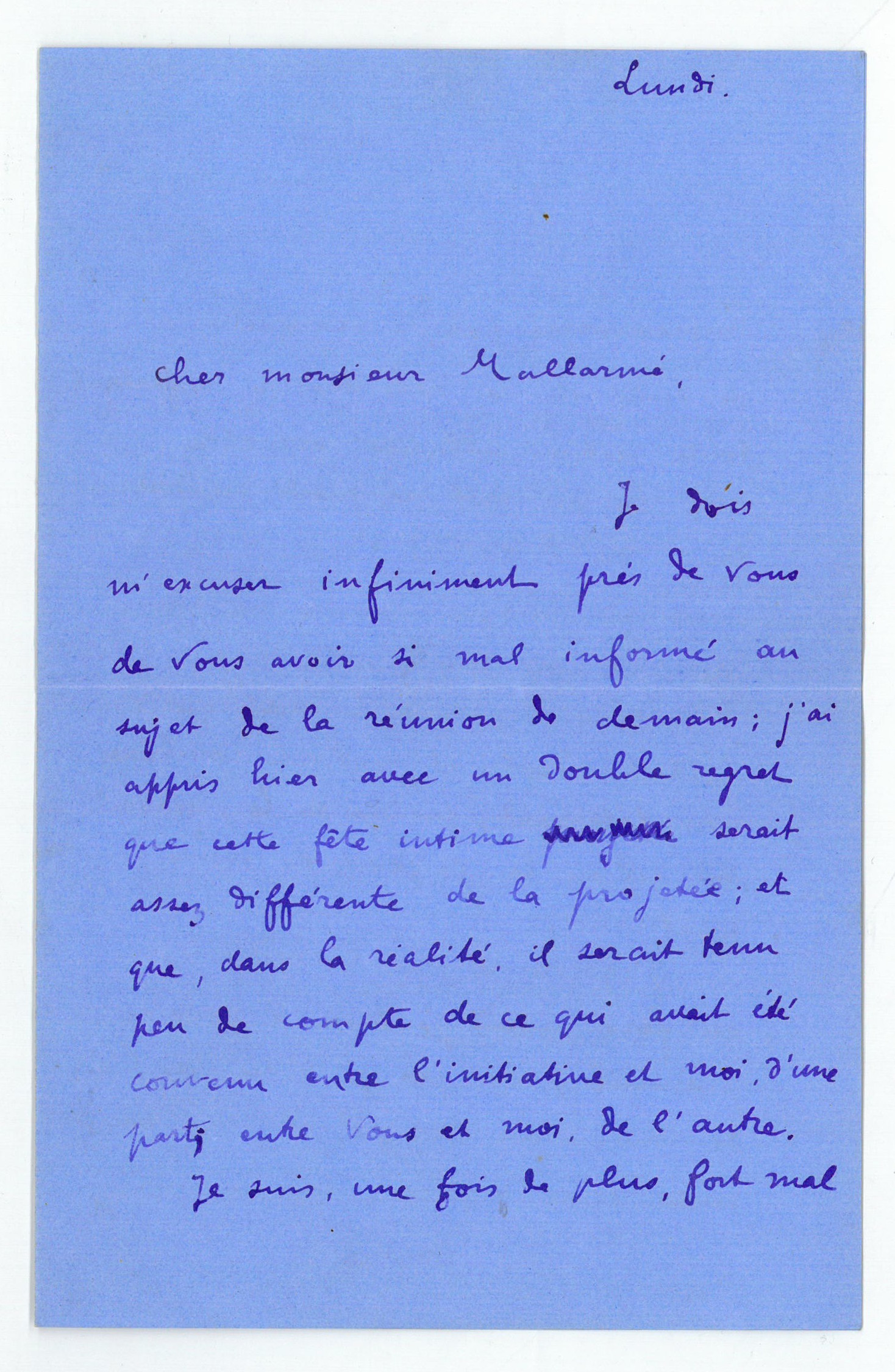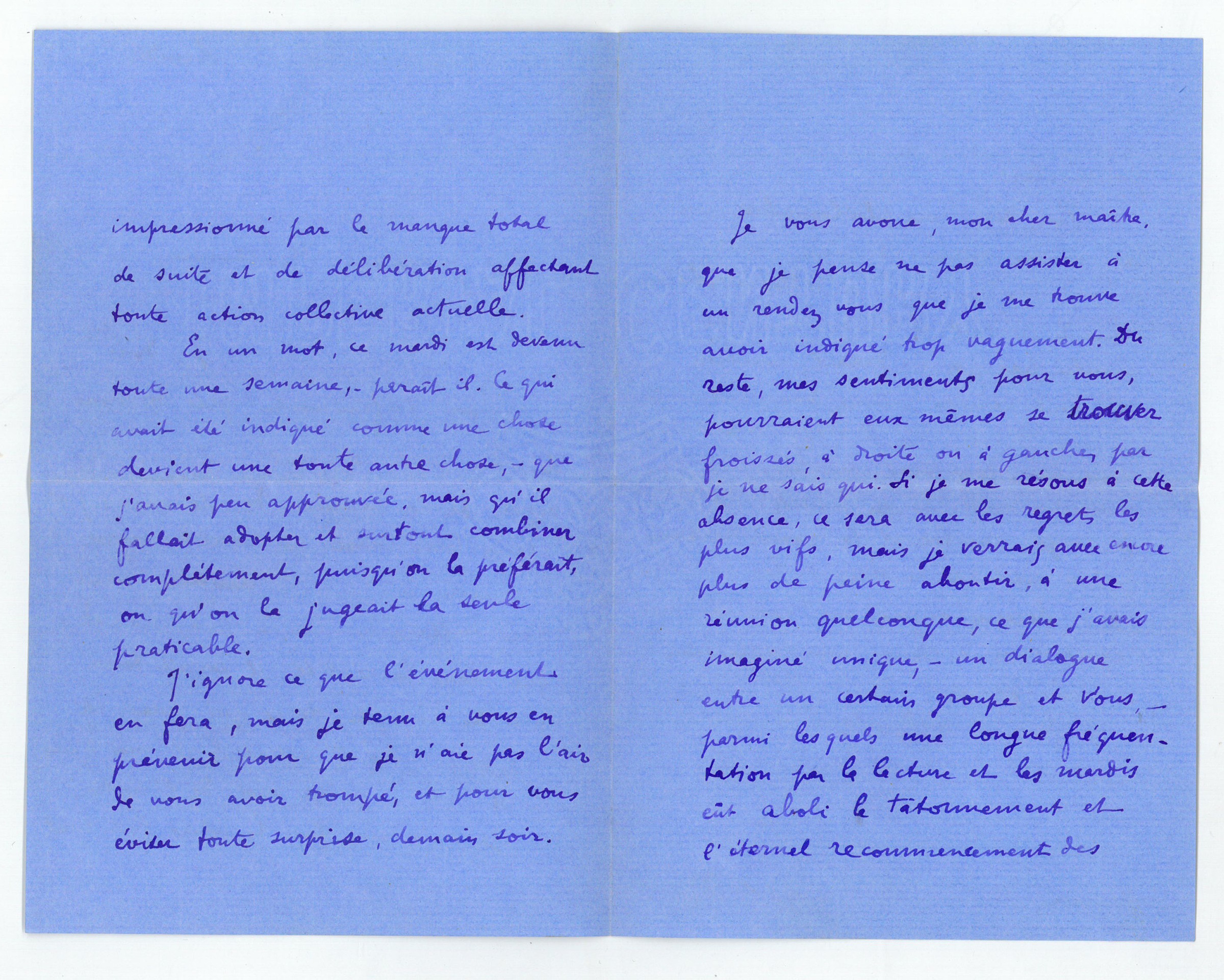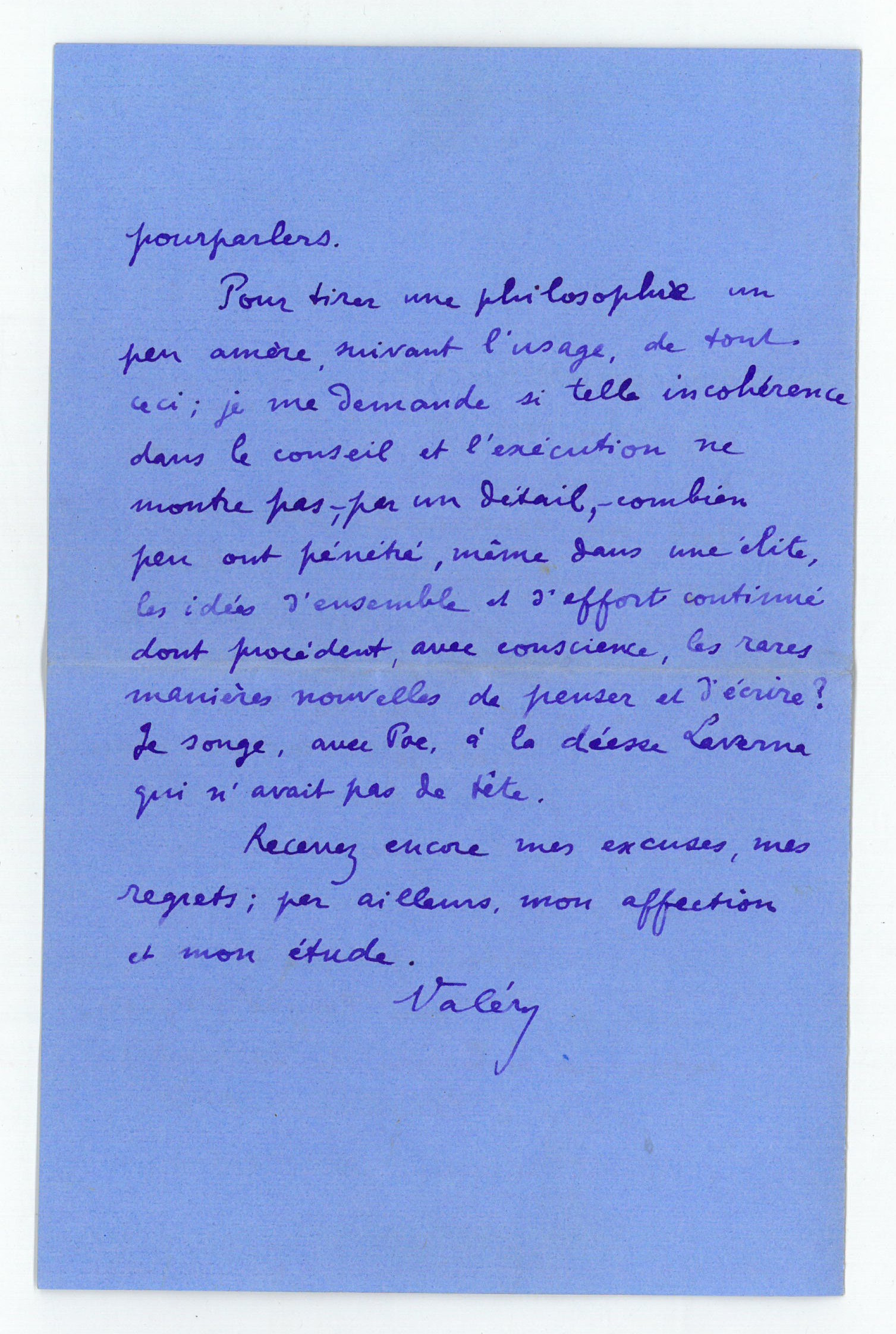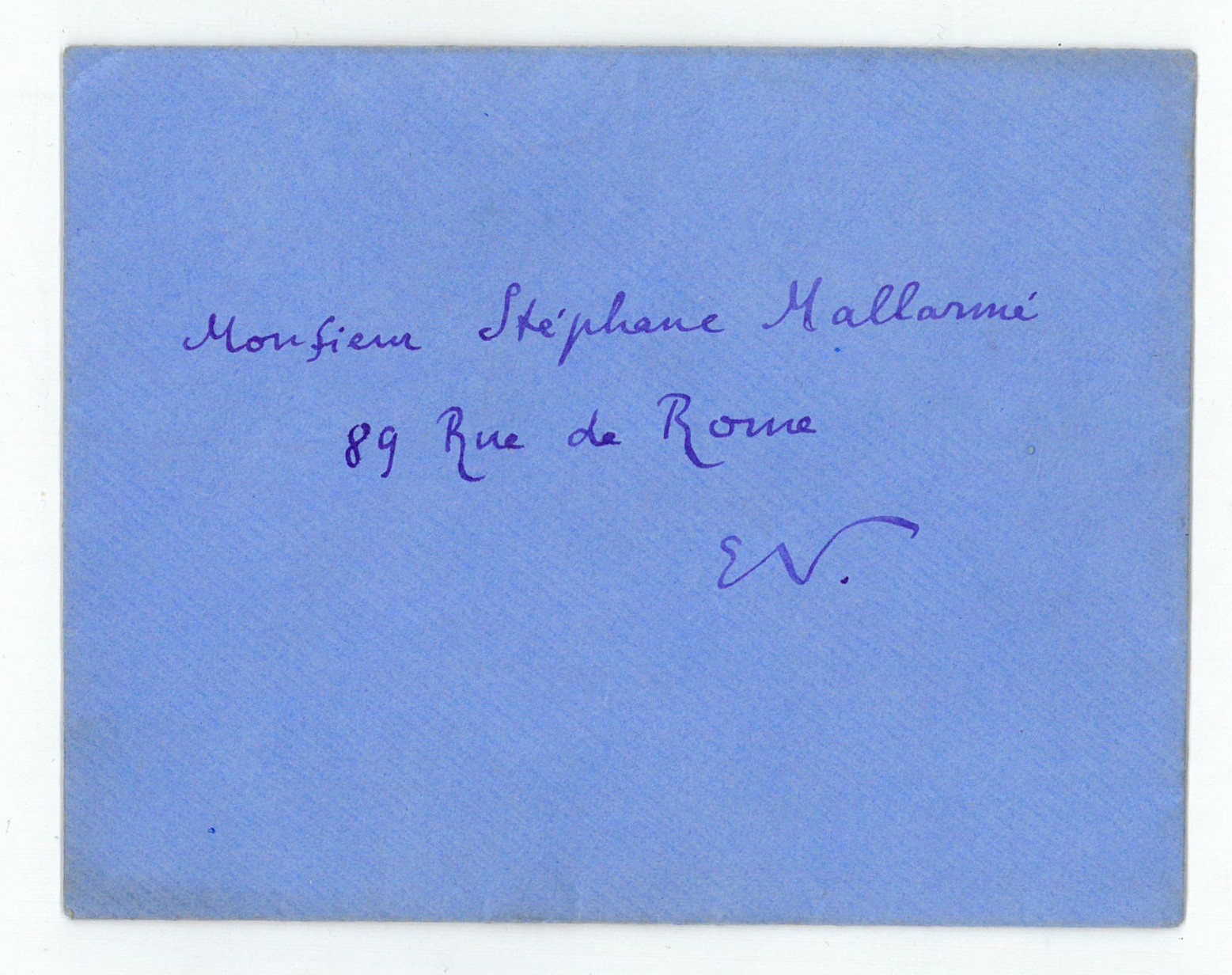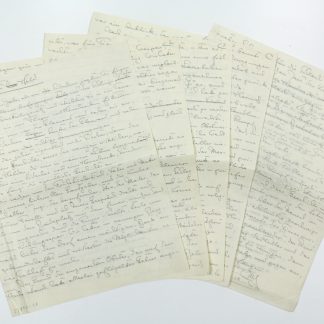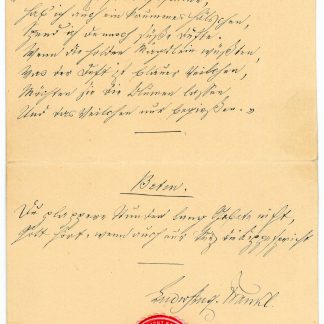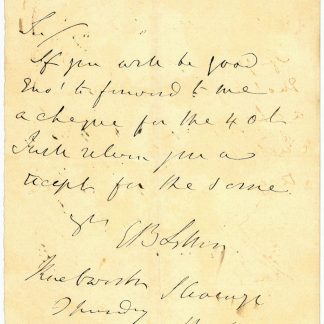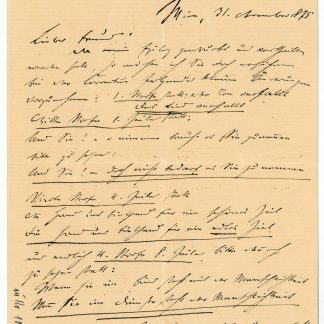"I must admit, my dear master": Paul Valéry and Stéphane Mallarmé
Autograph letter signed.
8vo. 4 pp. on bifolium. With autograph envelope.
€ 6,500.00
Interesting and beautiful letter to Stéphane Mallarmé concerning a dinner in Mallarmé's honour that was scheduled for the following day. Valéry had organized the dinner in celebration of the publication of Mallarmé's essay-collection "Divagations" together with the so-called Mardistes, the artistic circle surrounding Mallarmé that would meet every Tuesday in the house of the poet. Despite his involvement in the organization, Valéry wrote to inform Mallarmé that the dinner would not be as intimate as planned, blaming the co-organizers: "j'ai appris hier avec un double regret que cette fête intime serait assez différente de la projetée ; et que, dans la réalité, il serait tenu peu de compte de ce qui avait été convenu entre l'initiative et moi, d’une part ; entre vous et moi, de l'autre". Therefore, he would even prefer not to attend this "random meeting", fearing that his feelings for Mallarmé might be offended by others: "Je vous avoue, mon cher maître, que je pense ne pas assister à un rendez-vous que je me trouve avoir indiqué trop vaguement. Du reste, mes sentiments pour vous, pourraient eux-mêmes se trouver froissés à droite ou à gauche par je ne sais qui".
Valéry had imagined a "dialogue between a certain group" and Mallarmé that had a "long association through reading and the Tuesdays" and could do without the "eternal restarts of the negotiations". Thus, he draws a "bitter philosophical conclusion, as is customary", wondering whether this "incoherence between advice and execution" shows how little "the ideas of unity and continuous efforts" that produce "the rare new forms of thinking and of writing" have penetrated society, "even in an elite", and alludes to Edgar Allen Poe's "Murders in the Rue Morgue", although misrepresenting Poe's allegorization of the Roman goddess Laverna.
Valéry's motives for backing out were more personal than he would admit in the letter: the Mardist André-Ferdinand Hérold had invited Léon Dierx and Catulle Mendès against Valery's wishes. Mendès, on the other hand, was offended because the invitation reached him only on the day before the dinner. Asking Mallarmé directly if he wished him to come, the response must not have been very encouraging, as Mendès ultimately declined. Valéry was not aware of Mendès' decision when he wrote the letter at hand. Mallarmé responded encourageingly, asking Valéry to come for his sake and underlining that he did indeed remember what has been agreed upon. The dinner took place at the famous Cabaret du Père Lathuille in Batignolles. While Mallarmé was very pleased with the event, Claude Debussy was afraid that people might have noticed how bored he was, judging from the expression of his face.
Traces of folds. Well preserved.
M. Jarrety, Valéry-Mallarmé : des instananés sans légende, in: Romantisme 122 (2003), pp. 119-128.

